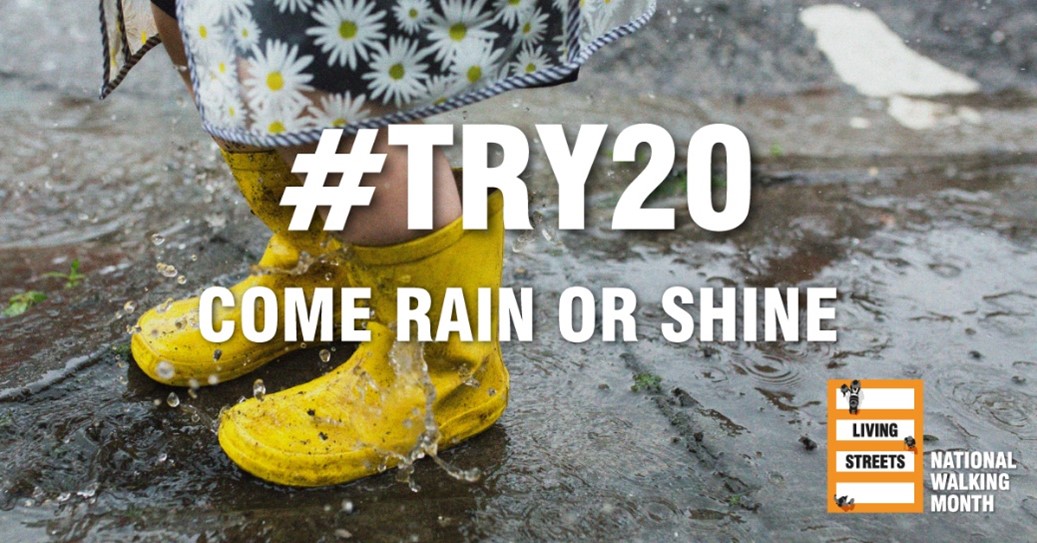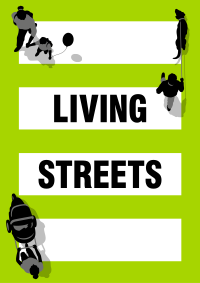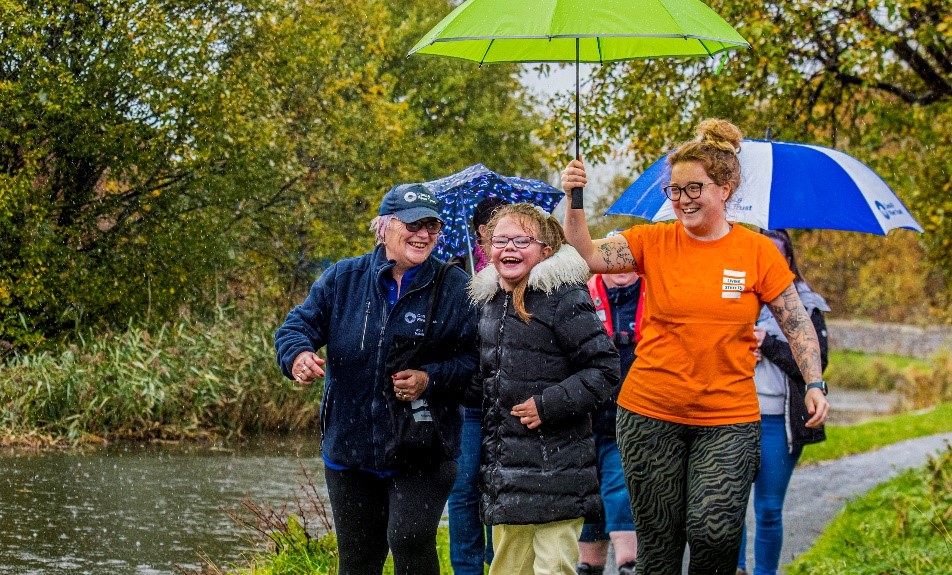
This May, Julia Bradbury will be supporting Living Streets, the UK’s charity for everyday walking, as they call for Brits to lace up their walking shoes to #Try20 and walk for 20 minutes every day throughout the month in celebration of National Walking Month.
 Walking is widely regarded as one of the best forms of exercise for people of all ages. A gentle form of cardio that is completely free, it encourages people to spend time outdoors socialising, while providing a wealth of health benefits.
Walking is widely regarded as one of the best forms of exercise for people of all ages. A gentle form of cardio that is completely free, it encourages people to spend time outdoors socialising, while providing a wealth of health benefits.
This includes helping to prevent the risk of conditions such as type 2 diabetes, heart disease, high blood pressure and certain cancers, as well as positively impacting your mental well-being by reducing stress, anxiety and also depression.
Focusing on the huge social, mental and physical benefits that are associated with walking, Living Streets’ #Try20 initiative aims to encourage people across the nation to get moving for 20 minutes a day this May, if they can, to boost their health and wellbeing.
Dr Amit Patel, a qualified doctor, diversity and inclusion campaigner, and Living Streets Trustee, said: “Walking is free, flexible, fun, and proven to have a tremendous impact on your health and wellbeing. A brisk walk, for example, can help you to build stamina and burn calories, as well as making your heart healthier. You don’t have to walk for hours, just 20 minutes a day is enough to have a big impact.”
Living Streets will also leverage National Walking Month to shine a bright light on the benefits of walking for those experiencing loneliness or social isolation and helping older adults to overcome barriers to walking.
The latest research by the Office of National Statistics states that around 1 in 20 (6%) of UK adults feels lonely always or often*. But data captured by Living Streets** has found that over half (68%) of older adults feel more connected with their community after taking up regular walking, and nearly three quarters (70%) feel less lonely or isolated – proving the power of walking for those who are feeling secluded.

 The charity works closely with local communities, authorities and partners all year round, to create streets which are safe and welcoming for all ages, often by addressing damaged footways and a lack of resting places or inadequate crossings. Their walking projects also promote healthier lifestyles and ensure people can stay active and connected with their communities in later life.
The charity works closely with local communities, authorities and partners all year round, to create streets which are safe and welcoming for all ages, often by addressing damaged footways and a lack of resting places or inadequate crossings. Their walking projects also promote healthier lifestyles and ensure people can stay active and connected with their communities in later life.
Stephen Edwards, Chief Executive at Living Streets, says: “Walking is good for our minds, bodies and neighbourhoods. Turning off our engines and turning to walking for short journeys will help reduce congestion, road danger and air pollution – while saving yourself some money in the process.
Even a short, brisk walk can have wonderful mental and physical health benefits that we shouldn’t take for granted.
“As well as the physical benefits, walking reduces the feelings of loneliness and isolation – as it promotes socialisation and boosts serotonin levels linked with feeling happier and less anxious. That’s why we are encouraging everyone to adopt a healthy habit this May and walk for 20 minutes a day for National Walking Month.”
As an outdoor walking enthusiast and explorer of picturesque hiking paths up and down the UK, Julia is extremely passionate about the benefits of walking both for your health and for the community. That is why she is getting behind Living Street’s National Walking Month and encouraging the nation to get walking this May and reap the benefits – whether that is getting out for 20-minutes a day to run errands or pick up the kids from school or trekking a beautiful coastal walk with your dog!
National Walking Month is also home to Walk to School Week – a national incentive to encourage children to walk to school and increase the amount of weekly exercise they do. Children are encouraged to exercise for at least 60 minutes a day, and walking to and from school can significantly help them reach this target.
The five-day walking challenge is a celebration of the walk to school and the perfect activity for parents to get their steps in as part of National Walking Month. This fun and engaging week-long activity has been built to make pupils experience first-hand the importance of walking to school, and not only does this help reduce air pollution and congestion from the roads, but it is a completely free way of getting your little ones to school.
To find out more about National Walking Month visit here, or to order your classroom packs for Walk to School Week visit here.
* Office for National Statistics
** Living Streets, data captured between 2013-present
